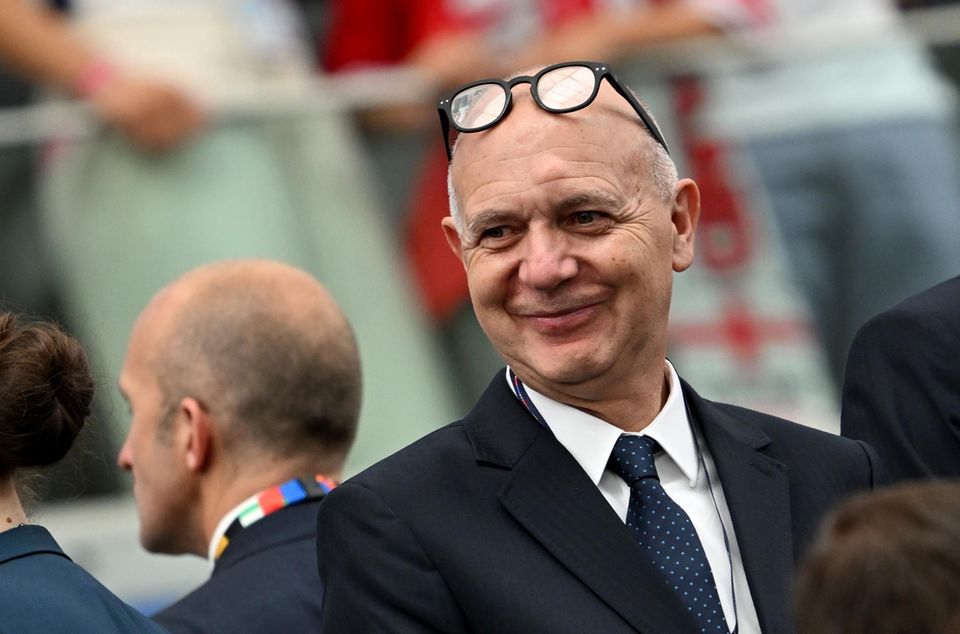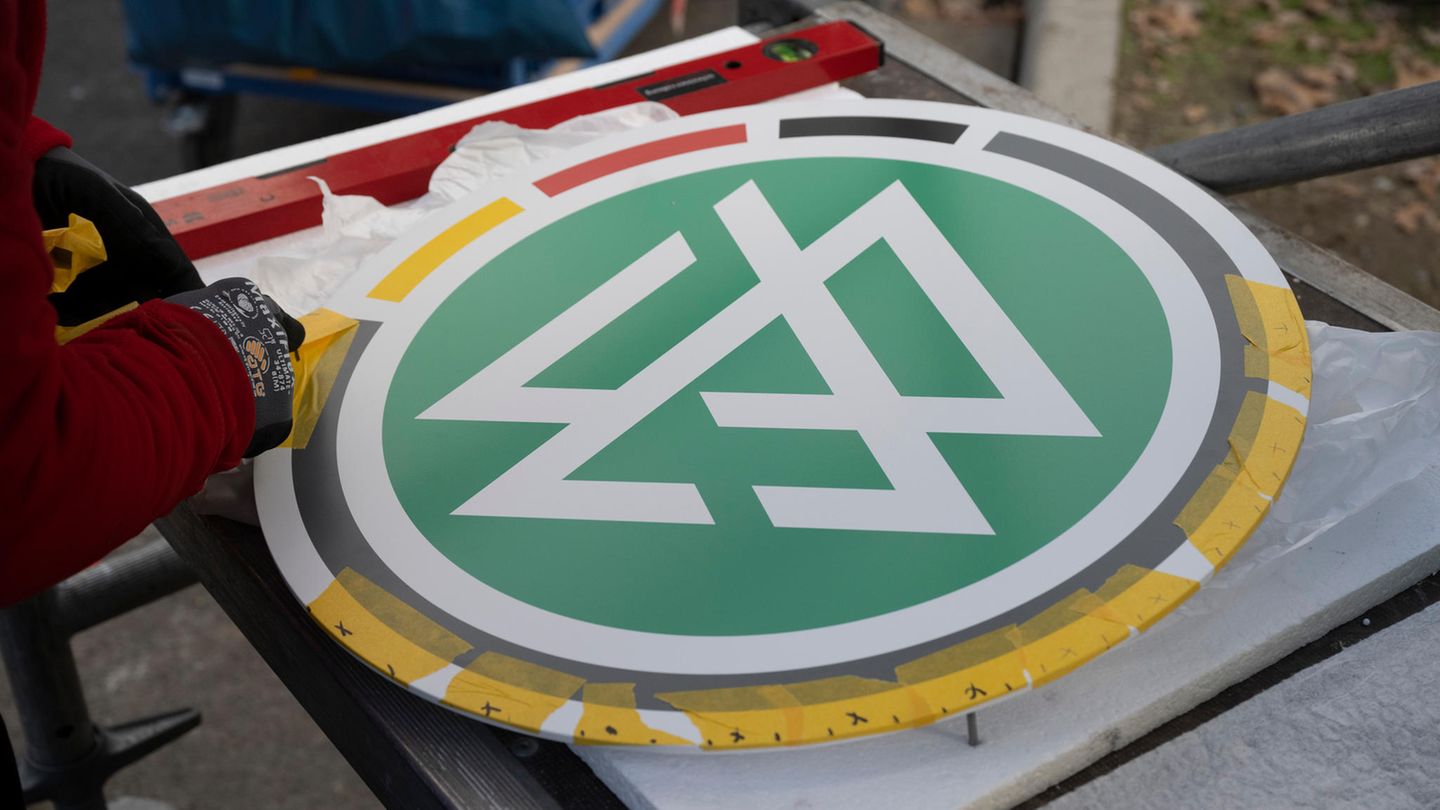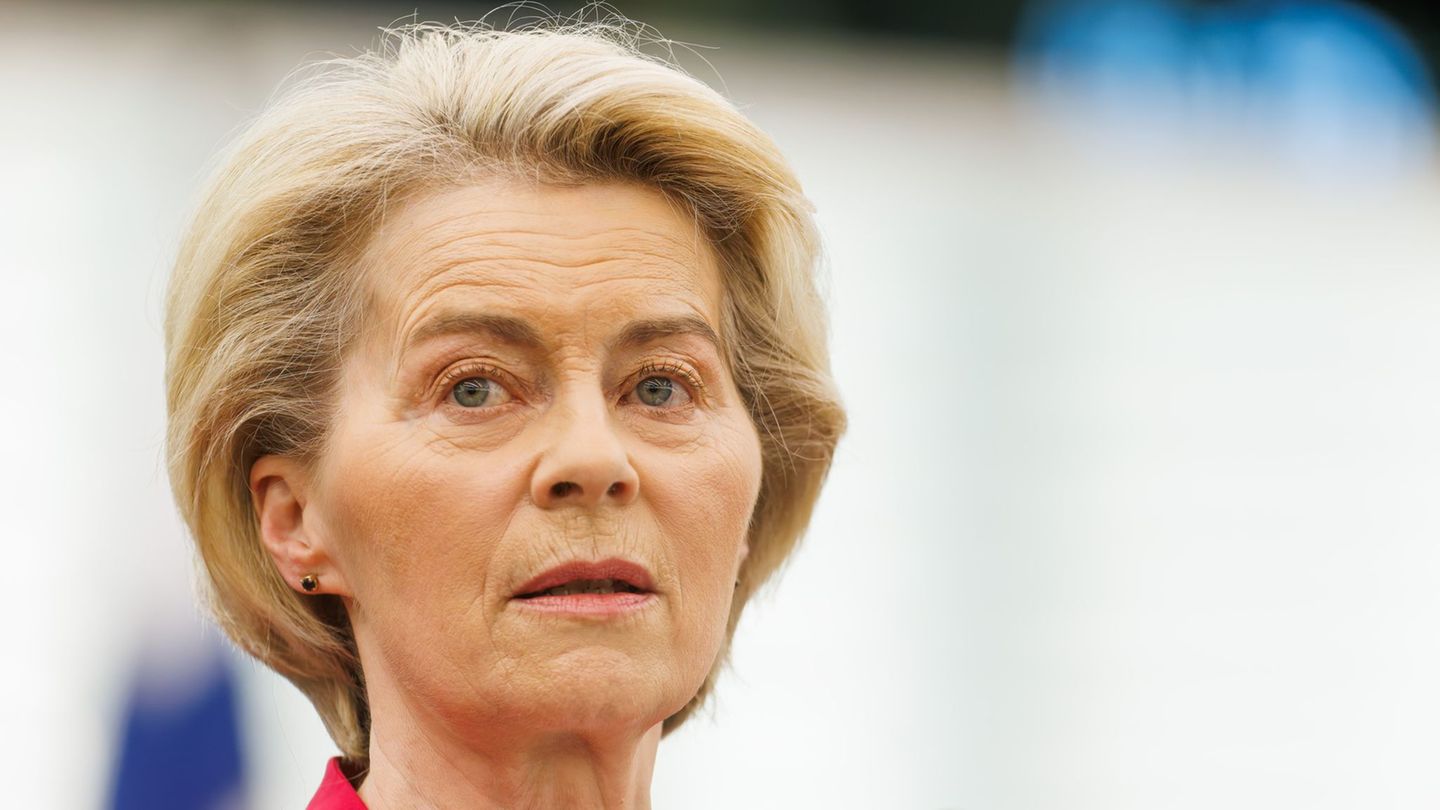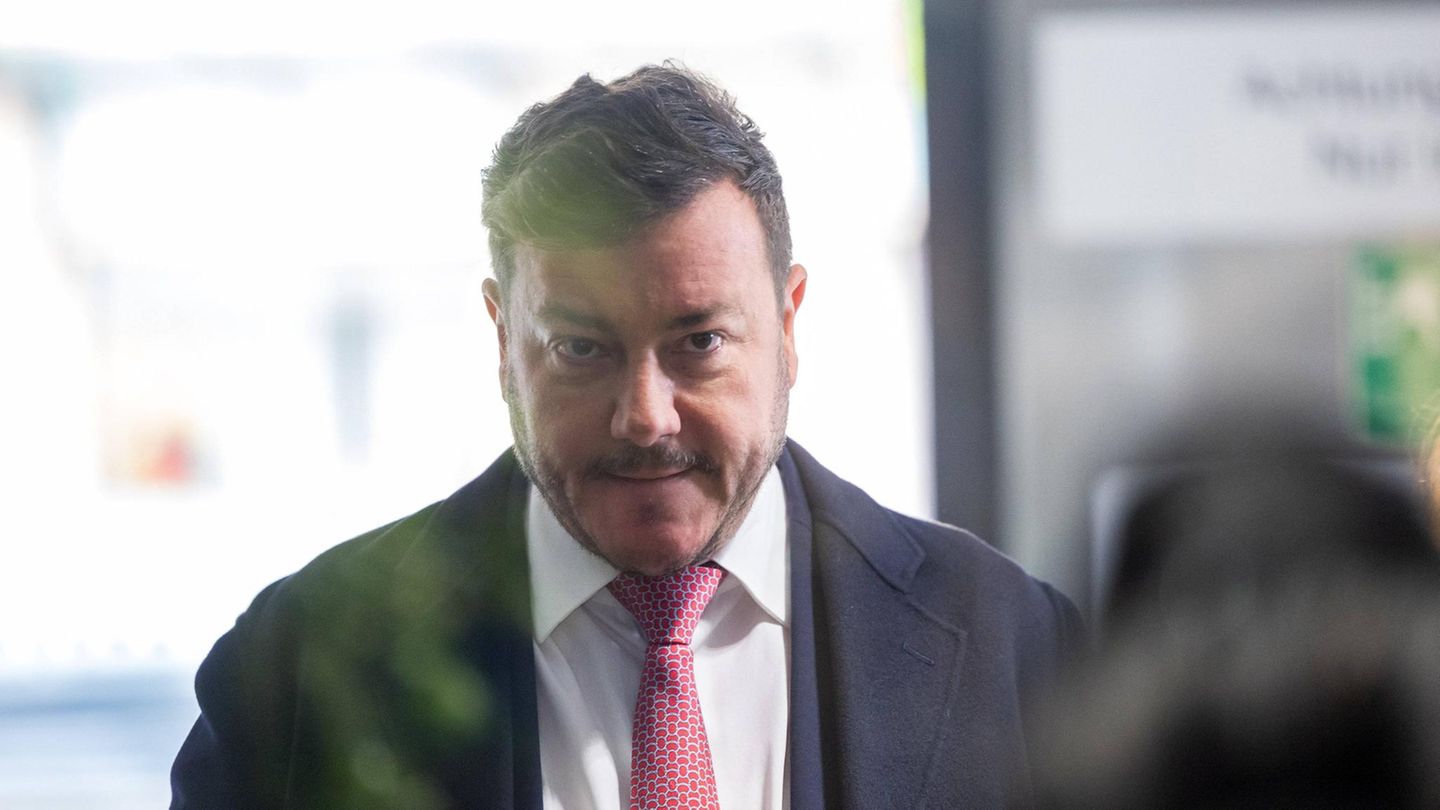In sporting terms, 2023 was a disappointing year for the DFB. But financially, it managed to turn around after two years of losses – even without the support of expensive consultants.
This is original content from the Capital brand. This article will be available for ten days on stern.de. After that, you will find it exclusively on capital.de. Capital, like the star to RTL Germany.
At first glance, visitors to the German Football Association’s headquarters in Frankfurt don’t see much evidence that a European Championship is currently taking place in their own country. No eye-catching banners or German flags, no special events. Only on the large video wall in the entrance area can you see a floor plan of the “home ground” – the campus of the sports goods company Adidas, where the national team set up its base camp during the European Championship at home.
Even during the tournament, work in the DFB administration continues as normal. In recent days, the association’s management has also completed work on the annual financial statements for 2023, and the auditors have now submitted their certificates. The financial statements are available exclusively to Capital.
What the figures show is that the world’s largest sports association in terms of membership fought its way out of its economic crisis last year. After two years in which the DFB posted losses due to back taxes, sporting failures and the burden of the costs of the new campus in Frankfurt, the DFB is reporting a profit again for 2023. Specifically, the annual surplus was just under 4.9 million euros – after a loss of 4.2 million euros in the previous year and even 33.5 million euros in the horror year of 2022.
The non-profit association (eV) benefited from the profit distribution of its subsidiary, in which it has concentrated its economic activities since 2022 – including the operation of the national teams and the areas of sponsorship and licensing. DFB GmbH & Co. KG transferred a surplus of 29.2 million euros. In addition, there was the dissolution of reserves at the KG in the amount of 9.5 million euros, which the DFB eV decided on as a shareholder.
“Light at the end of the tunnel”
“We see light at the end of the tunnel,” says DFB treasurer Stephan Grunwald. When the management consultant started as CFO in the team of the newly elected DFB President Bernd Neuendorf in spring 2022, he first carried out a financial review. The sobering finding: The DFB, which had long been so successful in sporting and financial terms, had a “structural deficit” of around 19.5 million euros – in other words, it was living massively beyond its means. As a result, the association’s leadership convened ten working groups with more than 50 employees from various areas and volunteers to make suggestions for savings opportunities and new revenue potential.
One year after the working groups presented their results, Grunwald now says: “I would no longer use the term structural deficit today.” DFB President Neuendorf says he is particularly proud that the association has achieved financial stabilization without the support of expensive consulting firms: “We managed to eliminate the structural deficit on our own.” However, this was also a “show of strength.”

Chief Financial Officer Grunwald cites three reasons for the turnaround: the effects of the internally developed budget consolidation measures, which add up to around 15 million euros a year in savings and additional income. The savings measures are “many small pieces of the mosaic,” says Grunwald – such as not running the turf heating for the training pitches in winter, which brings in a six-figure sum. After increasing the number of employees to more than 600 in the DFB Group in recent years, the company is now taking a closer look at personnel to see whether every vacant position needs to be filled.
Secondly, the revised version of the so-called basic agreement with the German Football League (DFL), which has been in force since July 2023, will lead to significantly higher revenues for the DFB. Grunwald puts this improvement at 24 million euros before taxes. The treasurer cites the “good successes” of Holger Blask, Chairman of the Management Board of DFB GmbH and Co. KG, in marketing the leagues that the DFB operates on its own (third division, women’s Bundesliga), as well as the DFB Cups and the senior national teams, as a third element that will contribute to reducing the structural deficit – despite a completely botched year in sporting terms, including the dismissal of national coach Hansi Flick and the elimination of the women’s national team in the preliminary round of the World Cup. This spring, the mega deal with future supplier Nike followed.
Overall, DFB GmbH & Co. KG’s sales increased sharply from EUR 376.5 million to EUR 423.4 million in 2023. Profit after taxes rose from EUR 23 million to EUR 34.2 million – of which EUR 29.2 million was distributed to the association. The complex financial relationships within the DFB Group also include other contractually defined payments: DFB GmbH & Co. KG pays DFB eV a profit-dependent rent for the commercial operations, which amounted to EUR 22.9 million last year, as well as almost EUR 8 million in rent per year for the use of the DFB campus in Frankfurt.
Reserve is increased for the first time since 2014
The DFB has gone through a “transformation process” over the past two and a half years, says association president Neuendorf. This affects both the financial situation and the structures in the sporting area, and everything is about “economic sense” and “stability”: “We don’t walk a tightrope.” Solid economic management creates acceptance and trust, including in politics, among the DFB’s partners and the financial authorities.
An important side effect of the significantly improved financial situation is that the DFB was able to increase its free reserves again last year – for the first time in a decade. The reserve – internally known as the “treasure chamber” and still worth more than 120 million euros after the 2014 World Cup triumph in Rio – had shrunk year after year since then, among other things to finance the large-scale new headquarters in Frankfurt. In 2022 it was only 41.4 million euros. Last year the financial cushion grew again to just under 54.7 million euros. The aim is to further increase the reserve in the coming years in order to be able to cushion risks and enable future investments in football, says treasurer Grunwald.
In addition to the costly campus, the legacy of previous DFB leadership also includes various tax proceedings. Because of the scandal surrounding the possibly purchased 2006 summer fairytale, the tax authorities retroactively revoked the association’s non-profit status for the year in question. The same happened for 2014 and 2015, in this case because the tax office considered the tax treatment of income from advertising boards to be incorrect. In all cases, the association has contested the tax authorities’ decision.
Despite its objections, the DFB has already paid back taxes and made significant provisions in recent years. In total, this has deprived the association of around 51 million euros in liquidity. Internally, the DFB continues to assume, also on the basis of external reports, that it will win the proceedings. However, there was little progress in these proceedings last year, as can be seen from the annual financial statements. In the summer fairytale case, the responsible tax court in Kassel wants to wait for the outcome of the ongoing criminal proceedings against former DFB officials. In the event of a success in court, the association can expect to receive around 24 million euros, according to the annual financial statements.
DFB waits for the tax office
In the dispute over the taxation of advertising boards and the subsequent revocation of non-profit status for 2014 and 2015, the association had lodged objections to the amended tax assessments at the beginning of 2023. Since then, the DFB has not heard anything from the tax office. In addition, an audit for the years 2016 to 2020 is still ongoing.
But even without any repayments, the DFB management is again calculating a positive annual result for the current year. Naturally, the commercial subsidiary will again be the driver of profits: it is planning an annual surplus after lease payments of around 35 million euros. One thing could improve the 2024 balance sheet a little: if the national team gets far in the home European Championships, earns high bonuses from UEFA – and thus triggers a hype that also attracts new sponsors for the association.
Source: Stern




